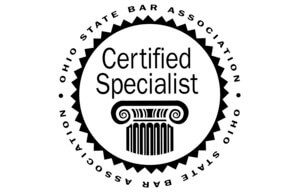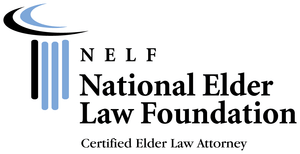Child Caregiver & Exempt Trust
/Cheryl was referred to our office by another law firm who had prepared a trust for her mother, Clara. Clara had been admitted to a nursing home the previous month, and Cheryl was concerned about Clara’s finances, and about some gifts that had been made in the last couple years.
An appointment for a consultation was made and a checklist was mailed to Cheryl, who gathered the papers indicated and brought them into the office for the consultation. The intake portion of the consultation revealed that Clara had approximately $48,000 in savings. Her vehicle was sold years ago. She had transferred her home to her daughter several months ago, worried that she would lose the home because of her poor health. She also had made gifts of cash to her grandchildren the previous year in the total of amount of over $20,000. Cheryl is her only child and the sole beneficiary under Clara’s trust agreement. Clara had serious health problems for years and, following her latest hospital stay, she was discharged to a nursing facility. Cheryl had been living with Clara for over four years and had been taking care of her full time. It was uncertain whether Clara would be able to return home again.
Several options were discussed, but any decision was tabled until Cheryl had consulted her mother’s physician. The doctor filled out forms indicating Clara’s condition and level of care requirements, both currently and two years previous. The doctor’s assessments supported the claim that Cheryl’s assistance over the past several years delayed Clara’s entry into the nursing home by over two years. Accordingly, we petitioned the local Medicaid office to exempt the transfer of the home to Cheryl from being penalized, which was granted. Because the home was not considered an improper transfer resulting in a period of ineligibility for Medicaid, only the gifts to the grandchildren were considered. The penalty imposed by reason of those gifts had lapsed by the time the application for Medicaid was made. (This would no longer be true for gifts made after the enactment of the Deficit Reduction Act effective February 8, 2006 - See "New Federal Medicaid Changes").
With regard to her savings, it was decided that, rather than spend down her assets to $1,500.00 in less than two years (should she remain in the nursing home for this period of time), it would be preferable to create an exempt trust whereby she could ensure that her assets would be available for her throughout her lifetime. A trust was created and executed by Clara, which named her daughter as beneficiary of the trust proceeds following Clara’s death and after all of her obligations had been paid. She transferred all of her assets above $1,500 into the trust. She was now eligible for Medicaid. Her income, less premiums for her health insurance and a forty dollar personal allowance, was payable to the nursing home every month while she was there. The balance of her bills, including the nursing home expense of $6,500 per month, was paid by Medicaid. The trust funds were available to pay for any extras (including travel to see family at the holidays, hobbies, clothing, eating out, a private room, a telephone, cable tv and a subscription to Netflix to watch movies) not covered by Medicaid. Should Clara return home, the funds would not have been exhausted on the nursing home expense, rather, she would continue to have the funds in the trust available to continue to support herself.





